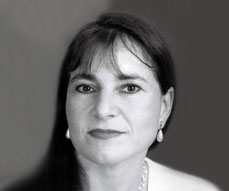Thought Leadership
Trauma Expert & Author
Ani Kalayjian is an internationally recognized expert on the psychological effects of trauma in disaster victims, and the author of the authoritative handbook, Disaster & Mass Trauma: Global Perspectives in Post Disaster Mental Health Management. She has worked extensively with veterans of the Gulf and Vietnam wars, with survivors of the Holocaust and Ottoman-Turkish Genocide of the Armenians, and with survivors of earthquakes and hurricanes. From 1988 to 2006 she went to Armenia, California, Cyprus, Florida, Japan, Korea, Taiwan, Sri Lanka, Pakistan, and Turkey to assist health professionals treating trauma cases after natural and human made disasters and to train psychiatrists, psychologists and general practitioners in post-trauma therapeutic interventions. With compassion, she has dared to confront the incomprehensible, giving us hope that those who have been damaged can one day be made whole. More important, her ultimate vision is that through peaceful resolution, man’s injustice to man will be prevented altogether.
Trauma PTSD assessment – According to the DSM-IV (1994), Post-Traumatic Stress Disorder (PTSD) (309.81) is categorized amongst anxiety disorders and it has the following six categories:
- The person has been exposed to a traumatic event in which both of the following were present:
- The person has experienced, witnessed or was confronted with an event or events that involved actual or threatened death or serious injury or a threat to the physical integrity of self or others.
- The person’s response involved intense fear, helplessness or horror. Note: In children, it may be expressed instead by disorganized or agitated behavior.
The traumatic event is persistently re-experienced in one or more of the following ways:
Recurrent, intrusive, and distressing recollections of the event, including images, thoughts or perceptions.
The traumatic event is persistently re-experienced in one or more of the following ways: Note: In young children, repetitive play may occur in which themes or aspects of the trauma are expressed.
Recurrent, distressing dreams of the event. Note: In children, there may be frightening dreams without recognizable content.
"Integrity is the essence of everything."












